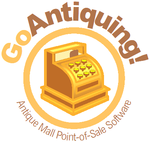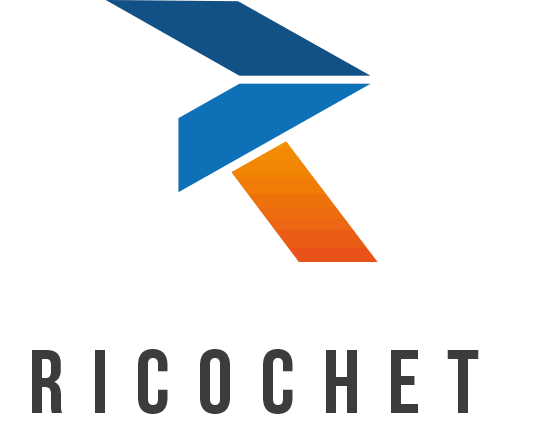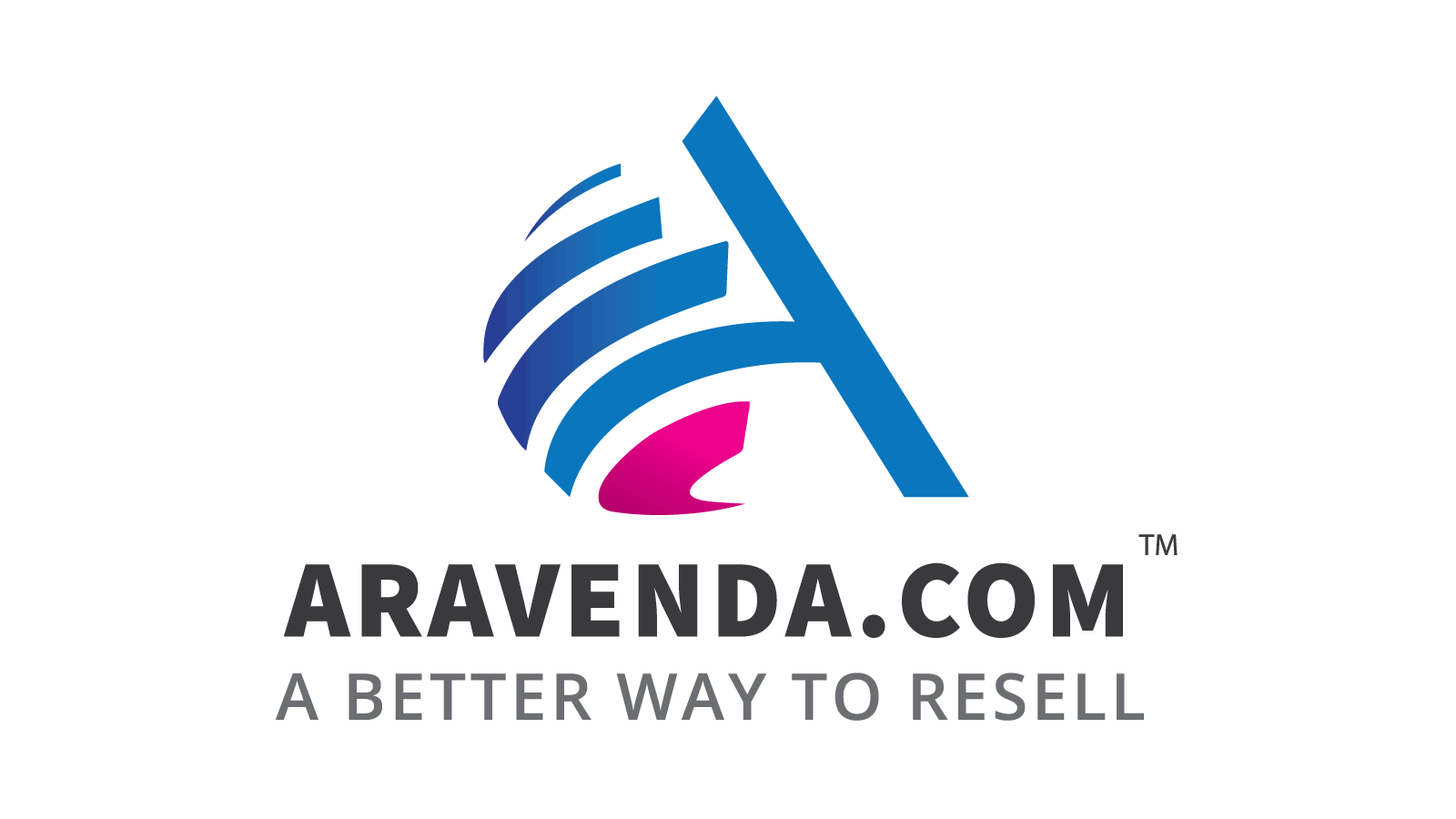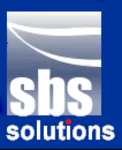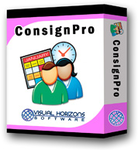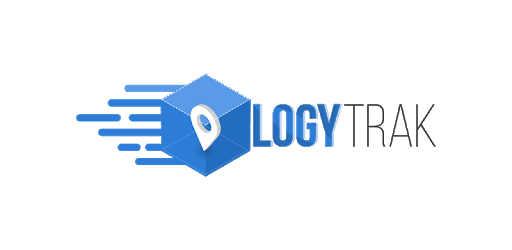Yes, most trustworthy consignment software can be accessed from numerous devices and platforms. This means you'll be able to access your consignment software from any desktop computer, laptop, or mobile device with ease. Additionally, most consignment software is compatible with a variety of operating systems, including Windows, Mac, and web-based platforms. This provides flexibility and convenience in managing your consignment business.
List of Best Consignment Software
GoAntiquing! POS is a and efficient solution for antique store owners. Its intuitive features include inventory management, sales tracking, and customer relationship management to streamline business operations and provide valuable insights for busin...Read More GoAntiquing! POS
Retail Plus Point Of Sale - the ideal POS solution for small businesses. With user-friendly features like inventory management, customer tracking, and quick card processing, you can enhance your business with our top-notch support and free tutorials...Read More Retail Plus Point Of Sale
ACCEO Smart Vendor is a and user-friendly retail management solution designed for businesses of all sizes. Featuring advanced features like inventory control, sales tracking, and customer management, this software offers an intuitive interface and ro...Read More ACCEO Smart Vendor
Epos Now is a cloud-based retail pos system that combines simplicity and efficiency for your business. Enjoy a seamless operation with our complimentary 30-day trial and discover the full potential of our system. Join thousands of satisfied businesse...Read More Epos Now
Ricochet - business communication tool that offers a range of features including a cloud-based phone system, lead management, CRM tools, call tracking, IVR system, and automated marketing. Simplify your communication processes and increase efficiency...Read More Ricochet
Aravenda Consignment Software is solution for resellers looking to optimize their consignment business. Our software, in collaboration with Shopify retail POS, enables effortless inventory showcasing and accurate payout calculations. As a trusted par...Read More Aravenda
Liberty4 Consignment is a software for consignment management. Tailored for jewelry stores, thrift shops, resale stores, and shopping malls, Liberty4 streamlines inventory tracking with its powerful tools and superior features. Trusted by industry ex...Read More Liberty4 Consignment
SimpleConsign is the premier choice of consignment software for antique stores, thrift shops, and resale businesses. Its comprehensive web-based platform simplifies inventory, consignor, and customer management, leading to enhanced efficiency. Our so...Read More SimpleConsign
The Consignment Shop is a, cloud-based software solution perfect for consignment shop owners and retailers. Its competitive pricing, user-friendly interface, and expansive features make it the top choice in the industry. Manage consignment easily and...Read More The Consignment Shop
Discover the ideal solution for inventory management in your consignment store with ConsignmentTill. This user-friendly software streamlines your operations with automated features and a barcode scanner, allowing you to effortlessly track consigned i...Read More ConsignmentTill
Rose for Square is a consignment sales tracker designed to seamlessly integrate with Square Inventory. With its powerful features, Rose eliminates the hassle of manual tracking and streamlines inventory management, purchases, payments, and other POS...Read More Rose for Square
ConsignPro is the leading consignment software for effectively managing all aspects of your retail business, including accounting, consignors, inventory, sales, and customers. Its comprehensive features make it the top choice in the market. Try it ou...Read More ConsignPro
Quail is a project management solution designed to streamline the project management process. Through its advanced features such as real-time team collaboration, customizable workflows, and comprehensive metrics, Quail enables businesses to enhance c...Read More Quail
Antique Mall Accounting - the perfect solution for antique and consignment shops. This specialized software simplifies invoicing and streamlines point-of-sale, inventory tracking, and mall operations. With its advanced features, it effectively manage...Read More Antique Mall Accounting
LogyTrak is a Transportation Management Software for real-time tracking of logistics, consignments, assets, and vehicle locations. Our advanced technology allows for seamless monitoring and management of transportation operations, leading to streamli...Read More LogyTrak
MySaleManager.NET is a software solution designed to streamline sales operations. With features such as real-time inventory tracking, automated invoicing, and comprehensive reporting, businesses can save time and improve accuracy. This powerful platf...Read More MySaleManager.NET
Learn More About Consignment Software
- What Is Consignment Software?
- What Are The Recent Trends In Consignment Software?
- Benefits Of Using Consignment Software
- Important Factors To Consider While Purchasing Consignment Software?
- What Are The Key Features To Look For In Consignment Software?
- Why Do Businesses Need Consignment Software?
- How Much Time Is Required To Implement Consignment Software?
- What Is The Level Of Customization Available In Consignment Software?
- Which Industries Can Benefit The Most From Consignment Software?
- Conclusion
What Is Consignment Software?
Consignment software, often known as consignment management software, is a digital solution that is intended to simplify and automate the process of managing consignment inventory. It is an essential tool for consignment retailers, thrift shops, and online marketplaces that offer products on consignment. This program offers a unified platform for vendors, buyers, and consignors to manage inventory, sales, and payments, decreasing human error and increasing efficiency.
Consignment software allows businesses to quickly track consignor information, item details, and sales statistics. This reduces the need for human record-keeping, which is time-consuming and error-prone. The program also facilitates communication with consignors and vendors by allowing for automated alerts of sales, payments, and ending consignment terms.
Businesses can also use consignment software to create automatic pricing rules that change an item's price as it ages on the sales floor. This function assists firms in staying current with market trends and ensuring that things are priced competitively, hence increasing sales and revenue. Another key feature of consignment software is the ability to generate reports and analytics.
This enables organizations to monitor their performance, identify top-selling items, and make data-driven decisions to enhance their overall sales strategy. In addition to these major functions, consignment software provides a variety of additional functionalities like as barcode scanning, POS connectivity, and mobile access, making it a complete solution for managing consignment inventory.
When selecting consignment software, customers should examine their business requirements, price, and the product's usability and scalability. They should also seek for software that provides dependable customer support and regular updates to guarantee that the product fits their changing requirements.
What Are The Recent Trends In Consignment Software?
In recent years, consignment, thrift, and resale retailers have come to rely on software. With the rise of the sharing economy and ethical buying methods, the consignment business has grown significantly in popularity. As a result, the demand for effective and optimized consignment software has increased. In this buyer's guide, we'll look at the latest developments in consignment software to help you make an informed decision when selecting the best software for your business.
1. Cloud-Based Systems: One of the most significant changes in consignment software is the shift to cloud-based solutions. Cloud-based software provides various benefits, including remote access, automatic updates, and safe data storage. It enables consignment store owners to manage their businesses from anywhere and at any time, making it easier to track sales, inventory, and customer information.
2. Integrated Payment: Processing Another trend in consignment software is the incorporation of payment processing systems. Traditional consignment techniques often require business owners to deal with a variety of payment methods, including cash, cheques, and credit cards. Integrated payment processing enables store owners to accept a variety of payment methods using their software, making the checkout process faster and more efficient.
3. Artificial Intelligence (AI) Technology: AI technology is another trend that is transforming the consignment sector. AI-powered software allows consignment stores to automate inventory management, pricing, and consumer data analysis. This technology not only saves time but also allows store owners to make more informed decisions by providing vital insights into their operations.
4. Mobile Applications: Mobile apps are becoming more popular in the consignment market. These apps enable store owners to manage their operations on the road, making it easier to track sales, inventory, and customer data. They also offer a convenient platform for buyers to explore and buy products from consignment shops.
5. User-Friendly Interface: A user-friendly interface is a key trend in consignment software. With hectic schedules and minimal technical skills, consignment store owners require software that is simple to use and navigate. Many software suppliers are working on creating simple and user-friendly interfaces to meet the needs of their clients.
Benefits Of Using Consignment Software
Consignment software is a specialized application that simplifies the consignment procedure for organizations. It enables consignment shops, secondhand stores, and other enterprises to easily manage and track inventory, sales, and commissions. In this buyer's guide, we'll go over the advantages of using consignment software and how it may help your business grow and thrive.
1. Centralized Inventory Management: One of the most significant advantages of adopting consignment software is the ability to centralize inventory management. The program keeps track of all things in stock, including their brand, size, color, and price. This function reduces the need for staff to manually track things, lowering the risk of errors and saving them time.
2. Streamlined Sales Process: Consignment software streamlines the sales process, making it faster and more efficient. From scanning barcodes to creating receipts, the program streamlines the entire sales process. This reduces time for employees, allowing them to serve more clients and improve income.
3. Accurate Tracking Of Sales And Commissions: Consignment software allows you to track sales in real time and calculate commissions for consignor payouts. This function eliminates the need for human computations, making the procedure more accurate and efficient, and decreasing the likelihood of conflicts with consignors.
4. Customer Management: Consignment software enables firms to manage their customers' information, such as purchase history and contact information. This tool allows organizations to create and sustain client connections by sending promotional emails or special offers, which increases customer retention and loyalty.
5. Extensive Reporting: Consignment software allows firms to generate extensive data on sales, inventory, commissions, and other key parameters. These reports enable firms to make more informed decisions and discover areas for improvement, ultimately increasing profitability.
6. Time And Cost Savings: By automating manual operations and optimizing procedures, consignment software helps organizations save time and money. This benefit is especially important for small businesses with limited resources, since it allows them to boost efficiency while focusing on growth.
Important Factors To Consider While Purchasing Consignment Software?
When selecting consignment software, there are numerous crucial considerations. These considerations will help you make an informed decision and guarantee that the software matches your company's specific requirements. The following are the essential aspects to consider when selecting consignment software:
1. User-Friendly Interface: Make sure the program you choose has an easy-to-navigate and understand interface. This will ultimately save you time and money on training.
2. Inventory Management: One of the primary functions of consignment software is to manage inventory. As a result, it is critical to select software that includes sophisticated inventory management capabilities such as consignment monitoring, stock level management, and inventory status reporting.
3. Consignment Tracking: This function lets you monitor the progress of consignment items, such as when they were received, sold, and paid for. It should also have the ability to track commissions for consignment transactions.
4. Point Of Sale (POS) System: Many consignment software solutions include built-in POS systems. This allows for more efficient sales processing and real-time tracking of consignment products. Ensure that the POS system is user-friendly and compatible with your existing gear.
5. Customizable Reports: Data is critical to having a successful consignment business. Look for software that allows you to create customized reports so you can gain insights into your company's performance and make informed decisions.
6. Integration Capabilities: If you use other tools or platforms, ensure that the consignment software integrates with them seamlessly. This saves time and effort by removing the need for manual data entry.
7. Data Security: When dealing with sensitive data, such as client information and financial records, data security is a major responsibility. Choose software that includes data encryption and regular backups to safeguard the security of your data.
8. Customer Support: Technical issues and questions may emerge when using any product. It is critical to choose a vendor who provides trustworthy customer assistance, whether by phone, chat, or email. 9. Scalability: As your firm expands, your software requirements may shift. Choose software that may be adjusted to meet your expanding business demands.
10. Cost: Finally, think about the cost and utility of the program. While price is important, you should also analyze the software's features and benefits, as well as how they fit into your business goals and budget. By taking these essential elements into account, you can guarantee that the consignment software you select is the best fit for your company and helps you streamline operations, increase productivity, and boost profitability.
What Are The Key Features To Look For In Consignment Software?
The correct software is vital for successfully operating a consignment firm. Consignment software can assist to optimize procedures, increase efficiency, and boost overall profitability. However, with so many options available, it can be difficult to decide which characteristics are most necessary. To make an informed purchasing decision, consider the following crucial elements to look for in consignment software:
1. Inventory Management: This is arguably the most important function to look for in consignment software. It enables you to effectively track and manage your inventory, including sales, returns, and restocks. Look for a system that provides real-time updates, automatic low-stock notifications, and the flexibility to sort inventory by category, brand, or other specific criteria.
2. Sales And Reporting: A decent consignment program should include comprehensive sales and reporting options that allow you to track daily, weekly, and monthly sales. This function can also track sales from multiple locations, allowing you to analyze the data and make more informed business decisions. Look for a system that allows you to create customized reports and charts to better understand your sales trends.
3. Customer Relationship Management (CRM): CRM features can assist you in developing and maintaining relationships with your customers. It allows you to manage customer information, sales history, preferences, and contact information. Look for a system that has an easy-to-use CRM and the capability to send tailored emails or marketing campaigns to your consumers.
4. Consignor Management: Consignor management solutions are vital for keeping track of consignor information, such as contact information, payment history, and products consigned. Look for a system that can automatically calculate consignor payments, provide reports for consignors, and withhold consignor payments until a specific level is met.
5. User-Friendly Interface: The software's interface should be straightforward and simple to use and explore. Look for a system that allows you to customize the dashboard, shortcuts, and layout to meet your specific demands.
6. Integration With Online Platforms: In today's digital age, consignment software must be compatible with online platforms and marketplaces. Look for a system that can integrate with e-commerce platforms like Shopify or WooCommerce to improve your online sales and inventory management.
7. Customer Assistance: When it comes to software systems, customer assistance is essential. Look for a company that provides complete customer support, such as training, technical assistance, and troubleshooting. Finally, when looking for consignment software, keep these crucial qualities in mind to ensure you pick the finest system for your organization. A well-designed consignment software can save you time and boost efficiency, resulting in a more successful consignment operation.
Why Do Businesses Need Consignment Software?
In today's world of e-commerce and online shopping, businesses frequently struggle to manage and track consignment merchandise. Consignment software solves this problem by providing a comprehensive system that allows businesses to manage inventory, sales, and client relationships all in one location. But why do businesses want consignment software specifically?
Here are some crucial factors to consider:
1. Simplifies Inventory Management: Consignment software enables businesses to effortlessly trace their consignment items, from receipt and storage to sale and return to the consignor. It streamlines the process, saving organizations time and effort while also reducing errors associated with manual inventory management.
2. Increases Efficiency: Consignment software makes firms more productive by automating operations and providing real-time information. It removes the need for human data entry, lowering the risk of errors and delays. This implies that businesses can focus on more vital responsibilities like customer service and marketing without having to worry about consignment products.
3. Improves Client Relationships: Consignment software gives businesses with information on their customers' purchasing behaviors, preferences, and previous purchases. This data can be utilized to adjust marketing efforts and increase customer retention, resulting in a more personalized and enjoyable purchasing experience for customers.
4. Enables Accurate Reporting: Consignment software provides sophisticated reporting and analytics features that help firms understand their consignment sales, profitability, and expenses. This data can help organizations make more informed decisions and identify areas for development.
5. Improves Contact With Consignors: Consignment software simplifies communication with consignors by offering a platform for sharing information such as sales records, payment details, and inventory changes. This helps businesses establish positive relationships with their consignors and assures timely and accurate payments.
How Much Time Is Required To Implement Consignment Software?
The amount of time needed to implement consignment software can vary depending on various factors such as the size and complexity of your business, the features and customization options of the software, and the expertise of your team in using the software. Generally, the implementation process can take anywhere from a few weeks to a few months. Firstly, it is important to consider the onboarding and training process.
This involves getting all of your business data into the software, configuring settings, and training your team on how to use the software effectively. This can take anywhere from a few days to a few weeks, depending on the size of your business and the amount of data to be transferred. Secondly, if the consignment software offers customization options, you may need to spend some additional time setting up and customizing the software to fit your business needs.
This can include creating custom fields, workflows, and reports. The time required for this step can vary depending on the complexity of your business processes and the level of customization needed. Thirdly, if you are migrating from an older software system, there may be some additional time needed to ensure a smooth transition. This may involve data migration and integration with other systems, which can take a few weeks to complete.
It is important to remember that the initial implementation period may require a significant time investment, but it is crucial for a successful long-term use of the software. It is also essential to allocate enough time for training and familiarization with the software to ensure your team is comfortable using it. In some cases, the implementation process may be expedited if the software provider offers implementation support and training as part of their services.
This can greatly reduce the implementation time and ensure a smooth transition to the new software. Overall, the time required to implement consignment software can range from a few weeks to a few months, depending on the factors mentioned above. It is crucial to have a clear understanding of your business needs and processes, as well as the features and level of customization offered by the software, to determine a realistic timeline for implementation.
What Is The Level Of Customization Available In Consignment Software?
When it comes to managing your consignment business, having software that can be customized to meet your individual requirements is critical. Fortunately, most consignment software provides a great level of customisation to help you optimize your procedures and improve efficiency. One important customization feature in consignment software is the ability to build and amend your own consignment contracts.
This allows you to include all of your company's terms and conditions while also creating a contract that fits your brand and style. In addition to contracts, you may control how your inventory is organized and displayed. This involves defining categories, adding custom fields, and writing unique item descriptions. This not only makes it easier to maintain and manage your inventory, but it also enables you to offer your products in a way that appeals to your target audience.
Furthermore, several consignment software systems allow you to customize pricing and discounts. This allows you to create your own pricing criteria, offer discounts to certain items or clients, and even schedule automated pricing modifications depending on market trends. It is also worth noting that certain consignment software firms charge a fee for additional customized services.
These may include customized reports and analytics, integration with other software or platforms, and the development of unique features to satisfy your specific business requirements. Overall, consignment software allows for a high amount of customisation, which can substantially benefit your organization. Make sure to explore and evaluate various software solutions to discover one that provides the level of flexibility that meets your requirements.
Which Industries Can Benefit The Most From Consignment Software?
Consignment software is a powerful tool that allows businesses to efficiently manage their consignment processes and streamline overall operations. While this software can be beneficial for a wide range of industries, there are certain industries that can benefit the most from its features and functionality. Let's take a closer look at these industries and how they can make the most of consignment software.
1. Retail: The retail industry is one of the largest users of consignment software. This is because retailers often work with multiple suppliers and need to keep track of a large number of inventory items. Consignment software can help retailers easily manage inventory, track sales, and streamline the consignment process with their suppliers. With features like automated inventory management, sales tracking, and real-time reporting, retail businesses can save time and increase efficiency while minimizing errors.
2. Fashion And Apparel: Fashion and apparel businesses often operate on a consignment basis, where they receive goods from manufacturers and only pay for the items that are sold. Consignment software simplifies this process by providing tools for tracking consigned inventory, sales, and vendor payments. This helps businesses in the fashion and apparel industry to maintain accurate inventory levels, make timely payments to vendors, and stay on top of their sales performance.
3. Furniture And Home Decor: Consignment software can also benefit businesses in the furniture and home decor industry. These businesses often deal with a large volume of unique inventory that needs to be constantly tracked and managed. With consignment software, they can easily create and manage inventory listings, track sales, and generate reports to analyze their business performance. This helps furniture and home decor businesses to stay organized and efficiently move their inventory, reducing the risk of overstocking or stock-outs.
4. Antique And Collectibles: Businesses in the antique and collectibles industry can also see significant benefits from using consignment software. With features like appraisal management and item tracking, these businesses can effectively manage their consigned inventory, keep track of consignor details, and generate reports on sales and profits. Additionally, many consignment software solutions offer features for storing and managing photos of items, making it easier to showcase and sell unique and valuable pieces.
5. Art Galleries: The art industry can also benefit from consignment software, specifically art galleries that work with multiple artists and consign pieces to different locations. Consignment software can help art galleries keep track of artist information, consignment agreements, and sales data for each piece. It can also provide automated notifications for agreements ending, simplifying the process of returning unsold artwork to the consignors.
Conclusion
Concluding your search for the best consignment software may feel overwhelming, but do not worry. After conducting extensive study and analysis of numerous platforms, you now have the essential knowledge to make an informed conclusion. In conclusion, while investing in consignment software, consider pricing, functionality, ease, customer support, and scalability.
These will ensure that you choose a platform that not only satisfies your current demands, but also grows with your business. Furthermore, take advantage of free trials and demos to gain firsthand knowledge and assess whether the software is compatible with your business procedures. Ask for references from current users and study customer reviews to learn more about the platform's dependability and usability.
Finally, selecting the correct consignment software for your company helps streamline operations, improve productivity, and boost revenues. So take your time, analyze your options, and select a platform that suits your needs and budget. With the appropriate consignment software, your firm will prosper and reach new heights.
Consignment Software FAQ's
Can Consignment Software Be Accessed Across Multiple Devices And Platforms?
Is Consignment Software Future-Proof And Adaptable To Emerging Technologies Like Ai, Blockchain or Iot?
Yes, consignment software is future-proof and adaptable to upcoming technologies such as artificial intelligence, blockchain, and the Internet of Things. As technology advances, consignment software companies must constantly update and integrate new features to remain relevant and competitive.
This includes the use of AI to automate operations and improve the customer experience, blockchain for secure and transparent transactions, and IoT for real-time tracking of consignment items. With these technologies, consignment software is at the forefront of innovation, ensuring smooth operations for consignment businesses.
Is There A Free Trial Offered To Assess Consignment Software Before Committing?
Yes, many consignment software companies allow free trials to prospective consumers. This allows firms to try the software and determine whether it fits their requirements before making a commitment. During the trial time, users can test the software's features and functioning to see if it is a good fit for their business. Contact your preferred consignment software vendor to learn about their free trial alternatives.
Does Consignment Software Offer Data Security Features And Meet Regulatory Compliance Standards?
Consignment software typically offers data security features such as encryption and secure cloud storage to protect sensitive information. It also meets regulatory compliance standards, including PCI DSS and GDPR, to ensure the security and privacy of customer data. These measures help businesses maintain compliance and protect themselves and their customers from data breaches and cyber attacks.
Can Consignment Software Integrate Seamlessly With Existing Tools And Platforms?
Yes, most consignment software packages can simply interface with existing tools and platforms. This covers popular accounting software, point-of-sale systems, and e-commerce platforms. Consignment software integrates with these systems to improve procedures and facilitate inventory, sales, and financial data administration and tracking. This integration also lowers the likelihood of errors and duplicate data entering. Overall, consignment software provides a more effective and streamlined way to run your consignment firm.

